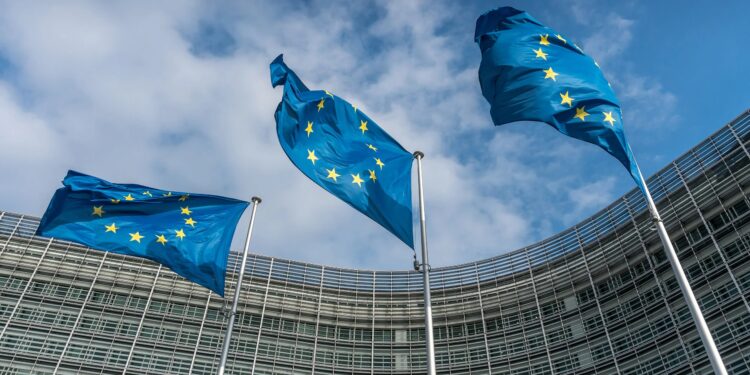European stock markets opened with significant gains on Thursday, April 10, 2025, following U.S. President Donald Trump’s announcement of a 90-day pause on most new tariffs for several countries, excluding China. This development provided a much-needed boost to investor sentiment after a period of heightened market volatility due to escalating trade tensions.
The pan-European STOXX 600 index surged by 5.9%, recovering a portion of the 12.5% loss it had experienced since the initial implementation of tariffs on April 2. Germany’s DAX index also saw a substantial increase, climbing 6.7%. All major European sectors, including banks, miners, and energy, reported significant gains.
This rally was spurred by President Trump’s decision to temporarily suspend tariffs for numerous trading partners, a move welcomed by European leaders. European Commission President Ursula von der Leyen expressed approval of the pause, highlighting the opportunity it presents for negotiations and adjustments by businesses. However, it’s important to note that while this suspension alleviates some immediate concerns, the U.S. administration simultaneously increased tariffs on Chinese imports to 125%, intensifying the trade conflict with China.
Despite the positive market response, underlying economic concerns persist. German economic institutes have revised their growth forecast for 2025 down to 0.1% from the previously expected 0.8%, even before accounting for the latest tariff developments. This adjustment underscores the potential long-term impacts of ongoing trade disputes on Europe’s largest economy.
In Sweden, Riksbank Deputy Governor Anna Seim commented on the nation’s preparedness to handle the evolving trade environment. She emphasized that Sweden’s stable economic policies and strong public finances position it favorably to navigate the uncertainties brought about by abrupt shifts in global trade and security policies.
While the temporary suspension of certain tariffs has provided a short-term boost to European markets, analysts caution that the situation remains fluid. The intensified trade war between the U.S. and China continues to pose risks, and market volatility is expected to persist as investors closely monitor developments and potential retaliatory measures.
In summary, the opening of European stock exchanges today reflects a positive reaction to the U.S. administration’s tariff pause for several countries. However, the broader context of ongoing trade tensions, particularly between the U.S. and China, continues to cast a shadow over long-term economic prospects and market stability.
newshub



Recent Comments